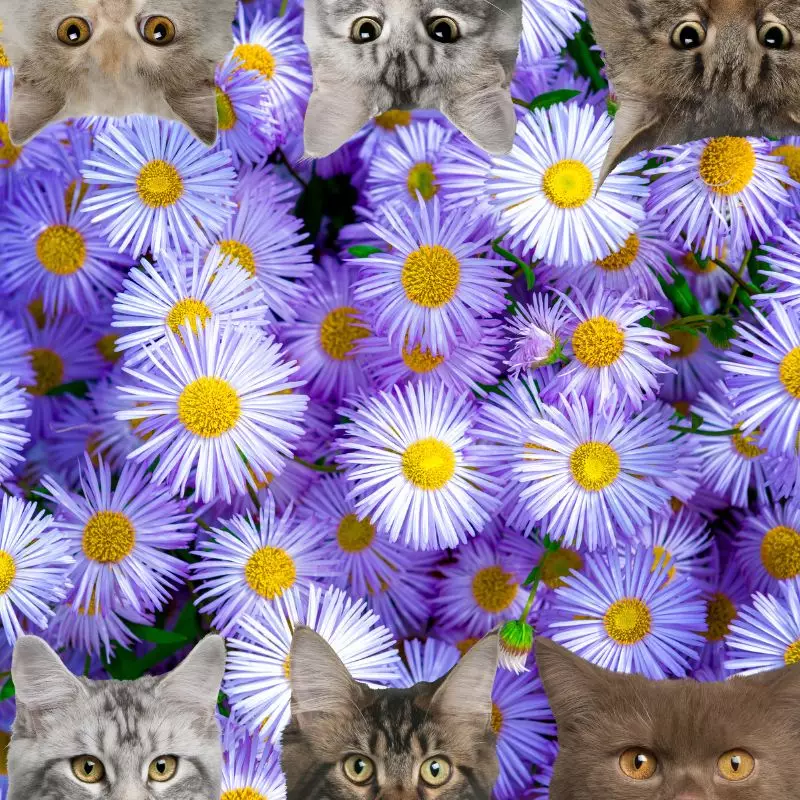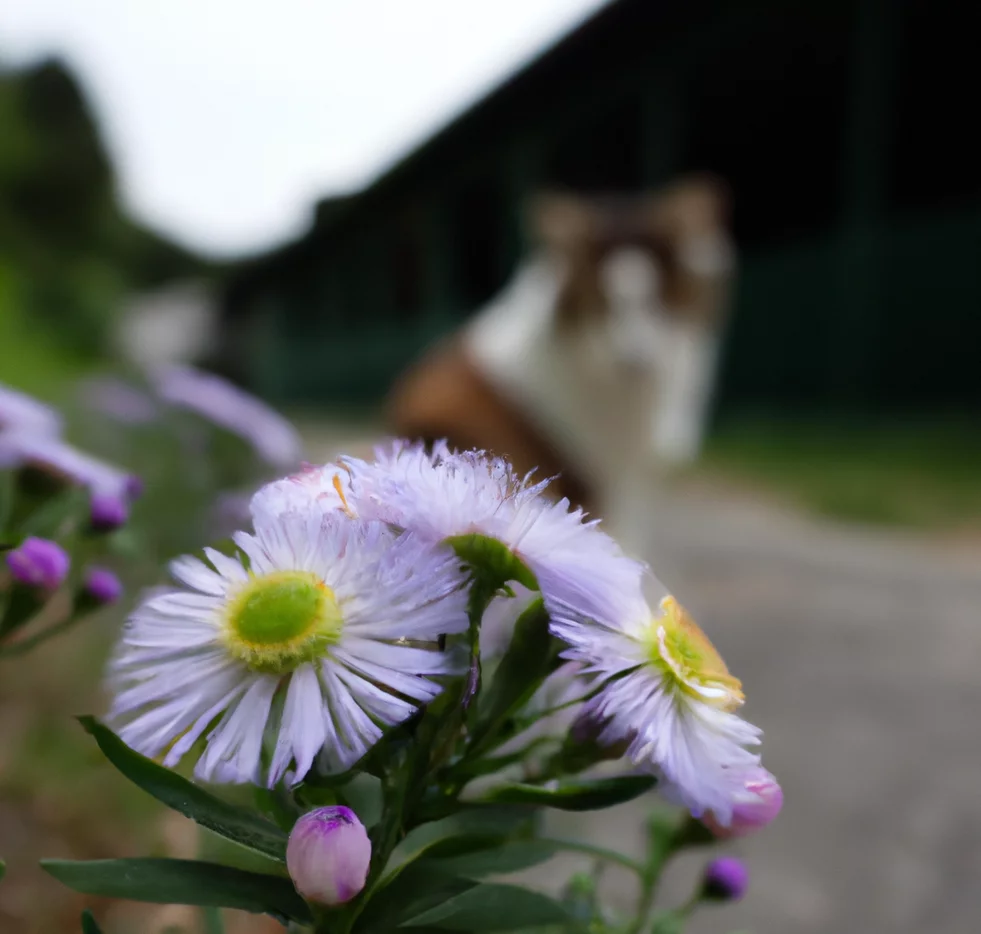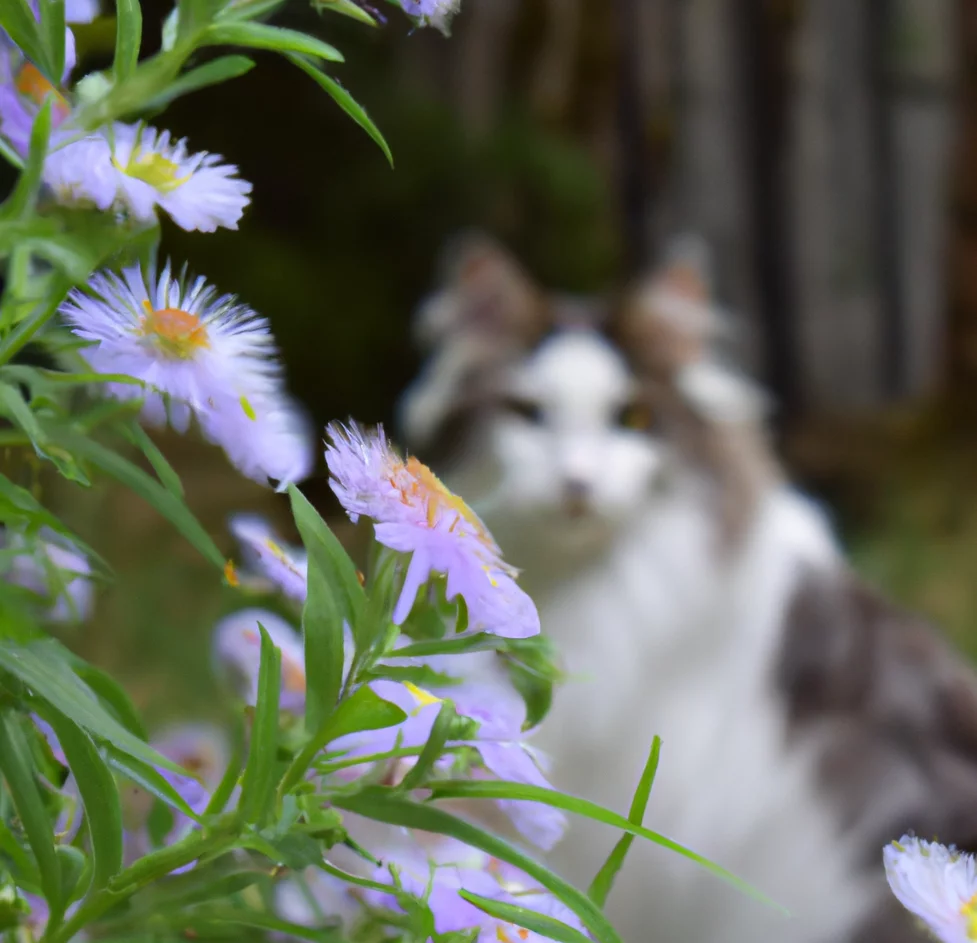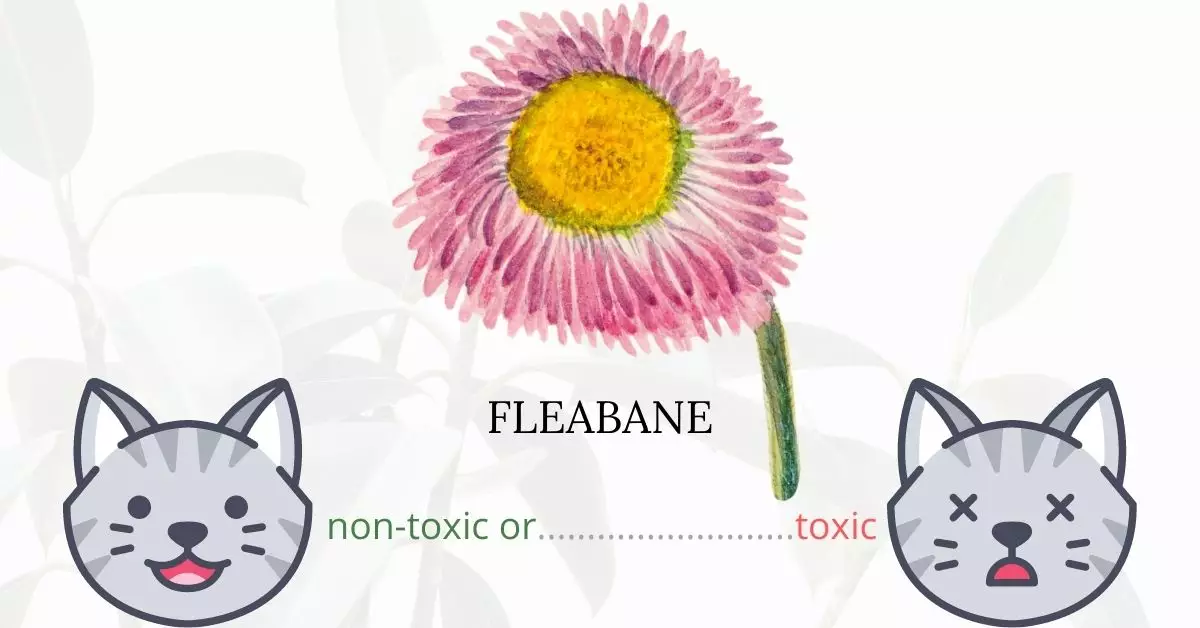Yes, Fleabane, also known as Showy Daisy, Horseweed, and Seaside Daisy, can be harmful to cats.
This article was written in collaboration with a team of experienced DVMs (doctors of veterinary medicine). Through their invaluable expertise, we aim to provide the most accurate and up-to-date information regarding the potential risks various plants present to cats, with a specific focus on Fleabane in this case. We have also meticulously researched high-authority websites such as ASPCA and PetMD to corroborate our findings.
Fleabane’s exact toxic properties are not fully known, but it’s believed to contain irritants that can cause gastrointestinal distress and skin irritation in felines. Although ingestion or contact with Fleabane can be distressing for your cat, it is generally not considered lethal. Nevertheless, if you suspect your cat has come into contact with Fleabane, it is advisable to consult with a veterinarian immediately.
Clinical Signs of Fleabane or Erigon Poisoning in Cats

When a cat comes into contact with, inhales, or ingests the Fleabane plant, various symptoms may manifest depending on the quantity and part of the plant consumed. Each symptom can be linked to specific irritants or properties present in the plant:
- Nausea: This is a common initial reaction in cats after ingesting substances that their bodies identify as harmful. In the case of Fleabane, certain compounds can irritate the stomach lining, leading to a feeling of nausea.
- Mild Vomiting: Often linked with nausea, vomiting serves as a protective mechanism for the cat’s body to expel unwanted or toxic substances. The compounds in Fleabane can prompt this response when consumed in significant amounts.
- Diarrhea: The digestive system can be disrupted by the ingestion of Fleabane. As the body tries to rid itself of the offending compounds, increased motility in the intestines can result in diarrhea.
- Hypersalivation: When a cat chews or tastes the Fleabane plant, the immediate oral irritation might lead to excessive salivation, a natural response to help dilute or wash away the irritant.
- Oral Irritation: Contact with the Fleabane plant, especially when chewed or consumed, can cause irritation to the sensitive mucous membranes of the mouth, leading to discomfort or pain.
If you observe any of these symptoms in your cat after suspected exposure to Fleabane, it’s essential to seek veterinary attention promptly to ensure their well-being and receive appropriate care.
First Aid and Treatment of Fleabane or Erigon Poisoning in Cats

Because fleabane poisoning is generally mild and rarely fatal, therapy will be supportive and geared toward alleviating your cat’s symptoms. Any remaining fleabane in your cat’s mouth should be removed quickly, and your vet may flush your cat’s mouth with fluid to remove any residue.
The vet may opt to induce vomit or use activated charcoal as he may deem necessary in your cat’s condition. Medications to ease other symptoms that your cat is experiencing may also be prescribed by the veterinarian.
Recovery from Fleabane or Erigon Poisoning in Cats

After a few hours of treatment, your cat should begin to feel better, and within 24 hours, he or she should be totally recovered. The vet may urge you to encourage your cat to consume extra water so that his or her stomach can continue to clear. Once home, you should let your cat rest as he or she may still be bothered by the poisoning experience.
Prevention of Fleabane or Erigon Poisoning in Cats
It may be beneficial to plant fleabanes in your gardens however this should be discouraged if you have feline companions in your household. Keep your cats indoors to reduce the chance of encountering fleabane and other harmful plants in your area.
If you love plants but have cats at home, check out these lists:





